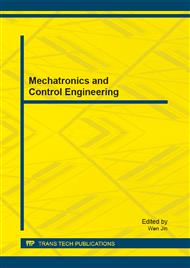p.425
p.430
p.436
p.440
p.446
p.451
p.457
p.462
p.468
LMS Estimator in Diffusion Tensor Estimation
Abstract:
DWIs do not contain signal bias caused by thermal noise but also outliers introduced by physiological noise. The least square estimator , the classic diffusion tensor estimator in the estimation of DTI, will produce the optimal result in diffusion tensor on the condition that the distribution of the error is Gaussian, while it cannot lead to a robust result if outliers exist. According to the problem exist in LS method, LMS robust estimator is proposed to estimate the diffusion tensor in this paper. Through experiments on the synthetic and real data, and comparing the estimate result of LMS estimator with LS estimator and M estimator, a more robust and more effective result can be produced in diffusion tensor estimation.
Info:
Periodical:
Pages:
446-450
DOI:
Citation:
Online since:
July 2013
Authors:
Price:
Сopyright:
© 2013 Trans Tech Publications Ltd. All Rights Reserved
Share:
Citation:


